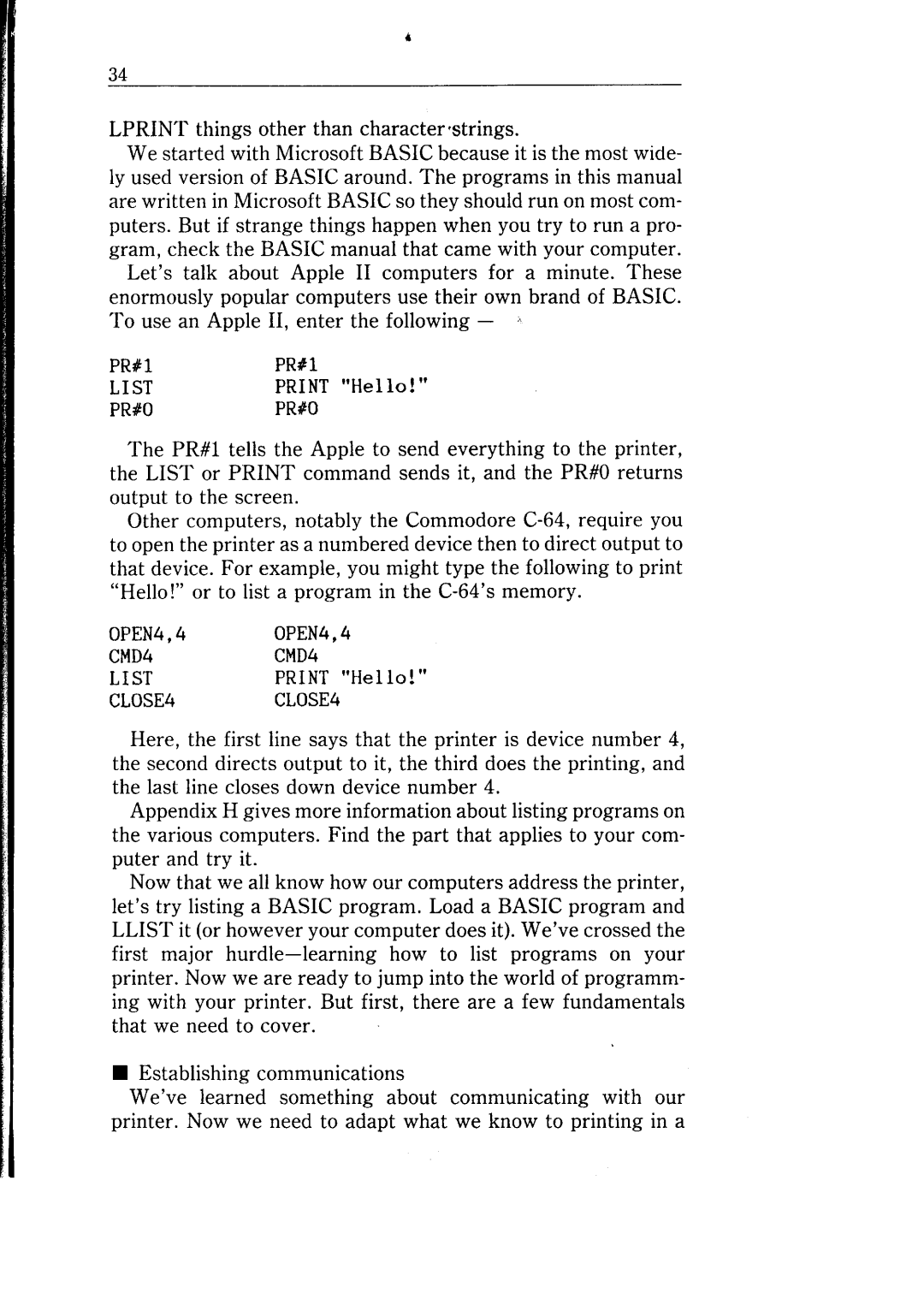
c
LPRINT things other than character strings.
We started with Microsoft BASIC because it is the most wide- ly used version of BASIC around. The programs in this manual are written in Microsoft BASIC so they should run on most com- puters. But if strange things happen when you try to run a pro- gram, check the BASIC manual that came with your computer.
Let’s talk about Apple II computers for a minute. These enormously popular computers use their own brand of BASIC.
To use an Apple II, enter the following - *
PR#l | PRRl |
LIST | PRINT"Hello!" |
PR#O | PR#O |
The PR#l tells the Apple to send everything to the printer, the LIST or PRINT command sends it, and the PR#O returns output to the screen.
Other computers, notably the Commodore
OPEN4.4 OPEN4,4
CMD4 CMD4
LIST PRINT"Hello!"
CLOSE4 CLOSE4
Here, the first line says that the printer is device number 4, the second directs output to it, the third does the printing, and the last line closes down device number 4.
Appendix H gives more information about listing programs on the various computers. Find the part that applies to your com- puter and try it.
Now that we all know how our computers address the printer, let’s try listing a BASIC program. Load a BASIC program and LLIST it (or however your computer does it). We’ve crossed the
first major
nEstablishing communications
We’ve learned something about communicating with our printer. Now we need to adapt what we know to printing in a
